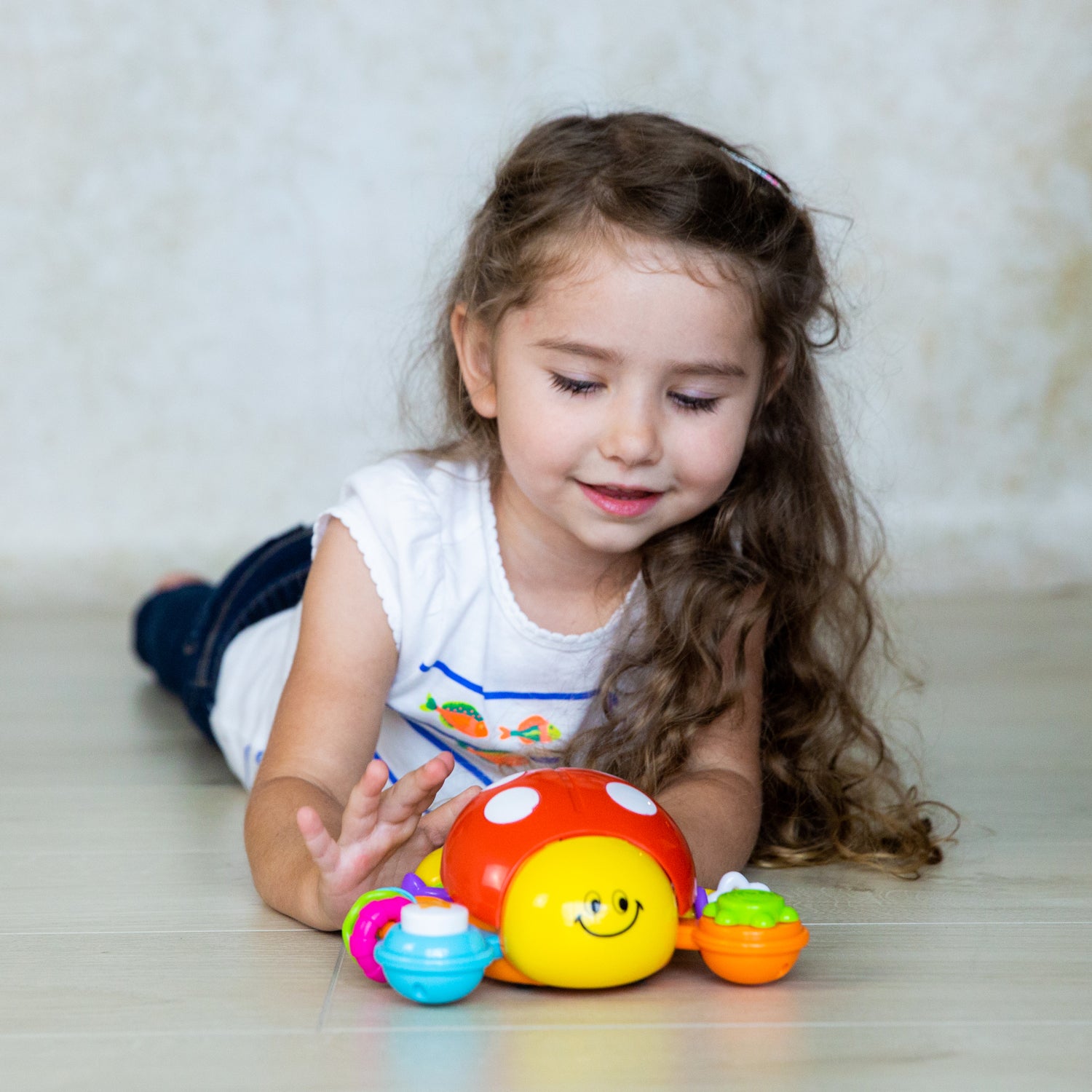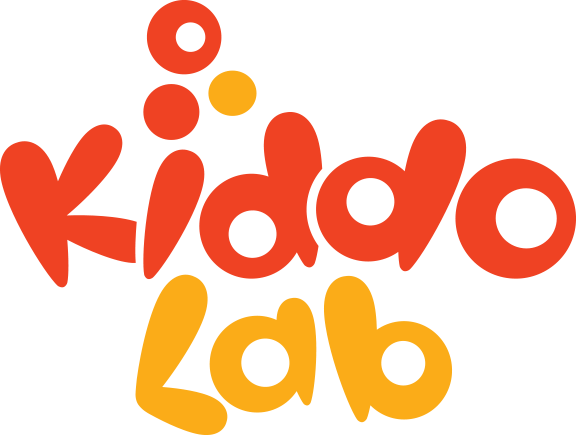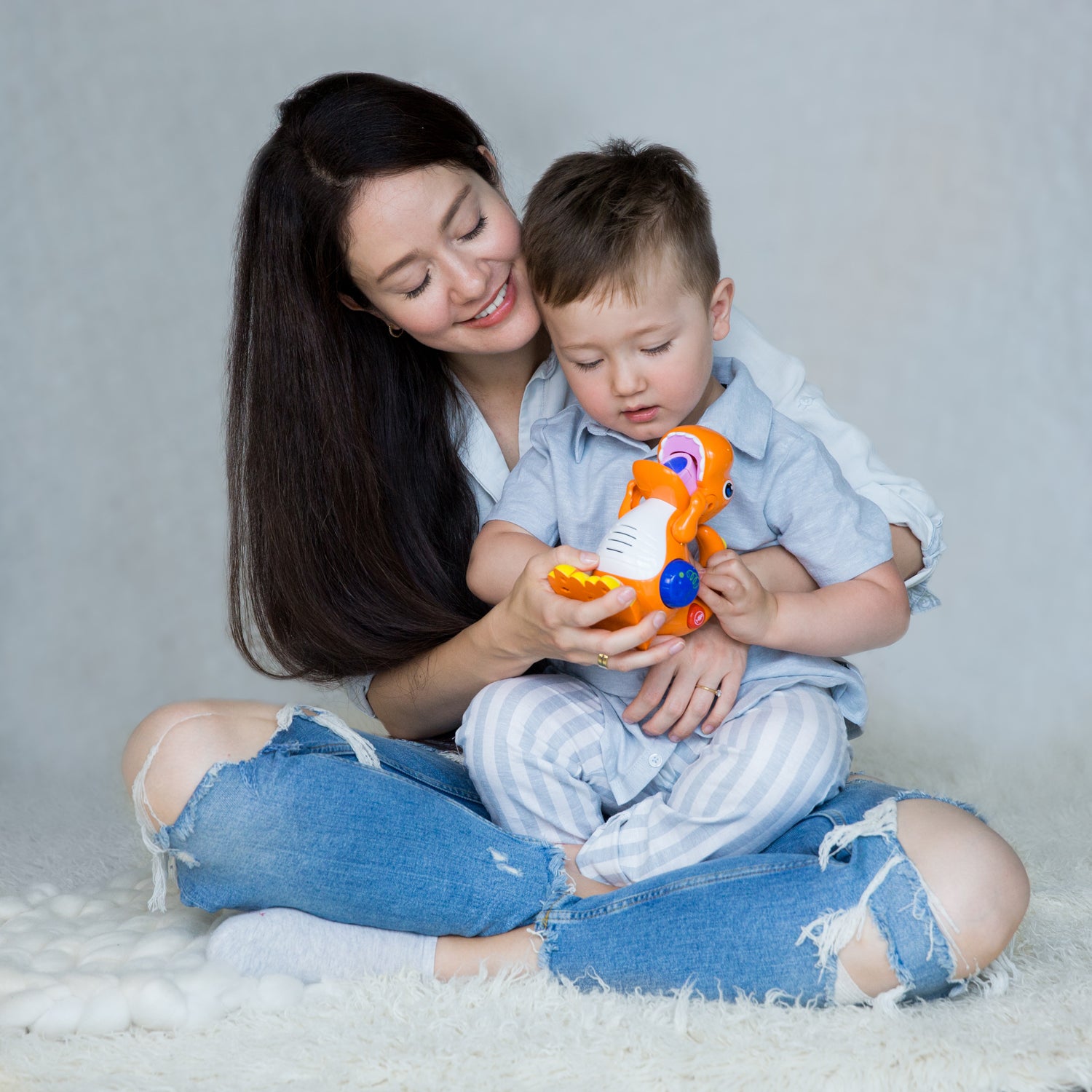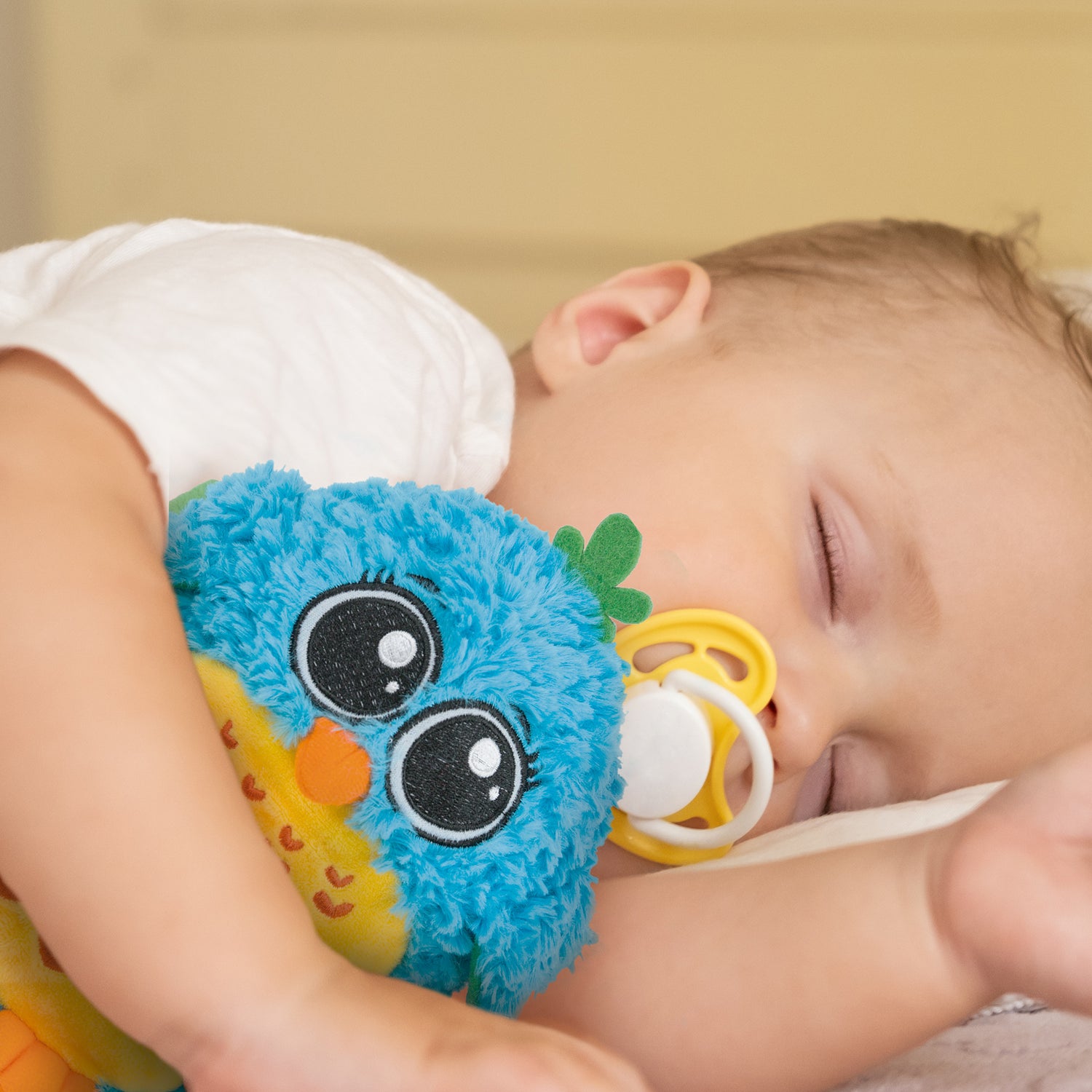Understanding Toddler Tantrums
Every parent has been there – that moment when your toddler's mood swings from joyful to fussy, often leaving you perplexed and stressed. Understanding why toddlers throw tantrums is the first step in effectively managing them. Tantrums are a natural part of child development, often stemming from the child's inability to express complex emotions or needs.
Why Do Toddlers Have Tantrums?
Toddlers experience a world of emotions they can’t always articulate. Frustration, tiredness, hunger, and the need for attention are common triggers. Recognizing these triggers can help parents anticipate and mitigate tantrums more effectively.

Parental Strategies for Managing Tantrums
-
Stay Calm: Your response sets the tone. A calm demeanor can be reassuring and help defuse the situation.
-
Acknowledge Feelings: Validate your child's emotions. Simple statements like "I see you're upset" show understanding.
-
Distraction and Redirection: Engage your child with a toy or activity. Kiddolab’s range of educational toys are excellent tools for this purpose.
Encouraging Positive Behavior with Kiddolab
Positive reinforcement is key in managing toddler behavior. Kiddolab's toys are not just for play; they are also tools for positive behavior reinforcement. Rewarding good behavior with time spent playing with a favorite Kiddolab toy can be a powerful motivator for children.
Reward System with Kiddolab Toys:
Incorporate Kiddolab toys into a reward system. For example, after a period without tantrums, allow extra playtime with a Kiddolab interactive toy. This system encourages positive behavior through constructive and educational play.
Effective Communication During Tantrums
Effective communication is crucial when dealing with a fussy toddler. It involves both listening to your child and expressing yourself in a way they can understand. Kiddolab's educational toys can play a vital role in facilitating this communication.
Enhancing Communication with Kiddolab:
Toys like Kiddolab`s interactive speaking pads can be instrumental in teaching children how to use words to express their feelings. These tools help in developing a toddler's vocabulary and ability to articulate emotions, reducing frustration and tantrums.
Creating a Calming Environment
A calming environment can significantly reduce the frequency and intensity of tantrums. Kiddolab's range of toys, designed to create a soothing and engaging atmosphere, can be an essential part of this environment.
Kiddolab's Calming Toys:
Products like the Kiddolab LumiPets emit soft light and gentle sounds, creating a tranquil space for children. This can be particularly effective during bedtime or when the child needs to wind down.
The Power of Routine
Toddlers thrive on routine, as it provides them with a sense of security and predictability. Establishing a consistent daily routine, including playtime with Kiddolab toys, can help in minimizing tantrums.
Routine and Kiddolab:
Incorporate Kiddolab toys into your child’s daily routine, such as specific times for educational play. This not only provides structure but also offers children something to look forward to, reducing the likelihood of tantrum-triggered disruptions.
Parental Self-Care and Support
Managing a fussy toddler can be taxing for parents. It's essential to take care of yourself and seek support when needed. Remember, your well-being directly impacts your ability to handle challenging situations effectively.
Finding Balance as a Parent:
While engaging your child with Kiddolab toys, take some time for yourself. Whether it's a few minutes of quiet or a quick catch-up with a friend, self-care is crucial for maintaining patience and empathy.
In addition to using Kiddolab toys as rewards, they can also be used to teach valuable life skills that preempt tantrums. For example, toys that require sharing or turn-taking can instill patience and understanding in children.
Life Skills with Kiddolab Toys: Use Kiddolab toys to teach concepts like waiting, sharing, and cooperation. These skills are essential for a child’s social development and can significantly reduce the instances of frustration-led tantrums.
Understanding the Role of Diet and Sleep
Often overlooked, diet and sleep play a significant role in a child's behavior. A well-rested toddler with a balanced diet is less likely to be fussy. Kiddolab’s educational toys can be part of a healthy routine that promotes good sleep and eating habits.
Promoting Healthy Habits with Kiddolab:
Use Kiddolab’s interactive mealtime and bedtime toys to create engaging routines around eating and sleeping. These toys can make mealtimes fun and bedtime calm, contributing to a well-balanced daily routine.
Leveraging Play for Emotional Regulation
Play is not just an activity for entertainment; it's a vital part of a child’s emotional development. Through play, toddlers learn to regulate their emotions, a key skill in reducing tantrums. Kiddolab’s range of toys is designed to support this aspect of development.
Emotional Learning Through Play:
Incorporate Kiddolab toys that require emotional understanding, such as those involving caregiving or empathy. These toys can help children understand and manage their emotions more effectively.
The Importance of Setting Boundaries
Setting clear and consistent boundaries is crucial for a child’s sense of security and understanding of acceptable behavior. Boundaries help children learn self-control and reduce the likelihood of tantrums.
Boundaries with Kiddolab Toys:
Use Kiddolab toys to establish and reinforce boundaries. For instance, setting time limits for play or using the toys as rewards for good behavior can help inculcate a sense of discipline and respect for rules.
Developing Social Skills Early
Developing social skills from an early age can significantly impact how a child handles frustration and interacts with others. Kiddolab’s toys are designed to encourage social interaction, an essential factor in reducing tantrum-related behavior.
Social Development with Kiddolab:
Engage your child in group play with Kiddolab toys. This not only provides an opportunity for fun but also teaches important social skills like sharing, turn-taking, and empathizing with others.
Encouraging Independence and Problem-Solving
Fostering a sense of independence and problem-solving in children can help them handle situations that might otherwise lead to tantrums. Kiddolab’s educational toys are perfect for developing these skills in a playful and engaging manner.
Independence Through Play:
Choose Kiddolab toys that encourage independent play and problem-solving, like building sets or puzzles. These activities not only keep children engaged but also teach them to deal with small challenges on their own.
Embracing Flexibility in Parenting
Flexibility is key in parenting, especially when dealing with toddler tantrums. Being able to adapt your approach based on your child’s needs and the situation can lead to more effective management of fussy behavior. Kiddolab's diverse range of toys offers various ways to adapt play to suit your child's mood and needs.
Adaptive Play with Kiddolab:
Whether it’s quiet time with a soothing LumiPet or an active session with an interactive learning toy, Kiddolab’s products offer the flexibility to match your parenting approach to your child’s current state.
The Power of Positive Reinforcement
Positive reinforcement is a powerful tool in shaping a child’s behavior. Praising good behavior and achievements, especially in moments of calm and cooperation, can encourage a child to repeat those behaviors. Kiddolab toys can be part of this positive reinforcement strategy.
Reinforcing Good Behavior with Kiddolab:
Consider using Kiddolab toys as rewards for positive behavior. For example, after a day without tantrums, allow extra playtime with a favorite Kiddolab toy. This reinforces the idea that good behavior leads to enjoyable outcomes.
Building a Support Network
Parenting a toddler is not a journey to be taken alone. Building a support network of family, friends, and other parents can provide valuable advice, empathy, and respite. Sharing experiences and strategies can make managing tantrums less overwhelming.
Community Engagement with Kiddolab:
Participate in parenting groups or online communities, possibly even those centered around Kiddolab’s toys, to share experiences and learn new strategies for managing toddler behavior.
The Role of Consistent Parenting
Consistency in your approach to handling tantrums is crucial. It helps your child understand expectations and the consequences of their actions. Consistency in using educational toys like those from Kiddolab can also aid in this process.
Consistent Learning and Play:
Regularly incorporate Kiddolab toys into your child’s routine for consistent learning and play. This not only aids in their overall development but also provides a sense of predictability and routine, which can reduce tantrums.
In conclusion, managing toddler tantrums involves understanding their causes, effective communication, creating a calming environment, setting boundaries, developing emotional and social skills, encouraging independence, being flexible, using positive reinforcement, building a support network, and maintaining consistency. Kiddolab’s range of educational toys can play a significant role in each of these areas, supporting parents in nurturing well-rounded, happy children.
Your Partner in Parenting:
Kiddolab is more than just a toy brand; it's a partner in your parenting journey, offering tools that make managing toddler tantrums more manageable and more effective.
Take the Next Step!
Equip yourself with the tools you need to turn every tantrum into a teaching moment and every playtime into an opportunity for growth.
With Kiddolab, transform the challenges of parenting into opportunities for bonding and development.



